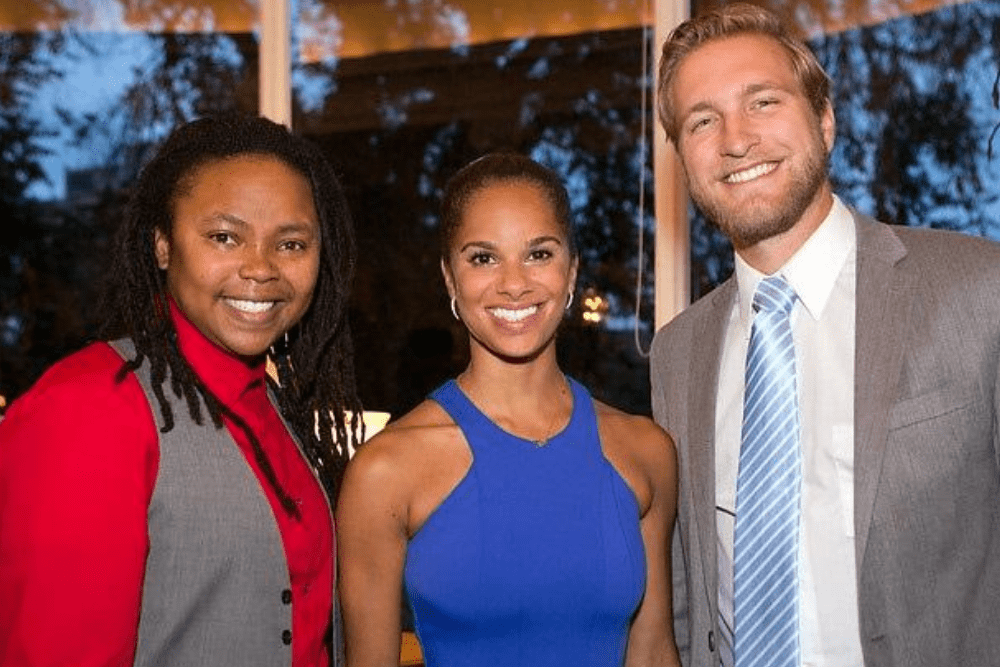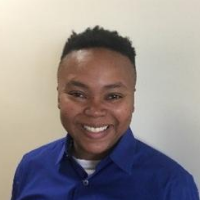
Black Philanthropy Month Donor Profile: Kim Desmond
A Trustee’s Vision of Redefining Philanthropy
With its anthro root, philanthropy means literally “love of mankind.” Though it is a definition that WFCO uses frequently (adapted for humankind) when most people hear the word “philanthropist,” the people who come to mind are largely male, white, and with billions of dollars to give.
 It is one of the reasons that Kim Desmond, a WFCO trustee since 2015, joined the board: to put a new face to philanthropy and undo the practice of putting an economic marker to it.
It is one of the reasons that Kim Desmond, a WFCO trustee since 2015, joined the board: to put a new face to philanthropy and undo the practice of putting an economic marker to it.
“There needs to be a variation on how you define philanthropy”
“There needs to be a variation of how you define philanthropy, in my opinion. Women of color have historically given to each other, their families, and those connected to an intricate web called community,” said Kim. “Growing up, none of my family and friends who were low income women of color were on boards. But guess what? They were giving. They were paying rent for the neighbor who couldn’t afford it, they were providing child care, they were lending money to relatives and friends with an identified fiscal need.”
Since 2011, Black Philanthropy Month is held every August as a global celebration and concerted campaign to elevate African-descent giving.
Black folks have always been philanthropists
“African American/Black folks have always been philanthropists,” said Kim. “Culturally, we’re connected beings. Culturally, we’re looking out for our families, which include our community. There’s a giving system in communities of color that is rooted in economic and social capital within a nuanced cultural context that is rooted in sharing resources.”
Kim’s involvement with The Foundation began in 2014 simply as an interested community member when she joined WFCO’s grantmaking committee. Kim works for the City of Denver as the Director for the Mayor’s Office of Social Equity and Innovation. Away from work, she also dedicates her time to advancing racial equity and inclusion by dismantling systemic racism.
“I’m very selective with my civic engagement commitments – it has to align with addressing systemic racism and revisioning systems of equity that tackle racial disparities” she said.
Gender equity and racial equity are not separate conversations
Kim wanted to be part of a movement that looked at the intersection of gender and race. She saw an opportunity at WFCO and accepted a board position.
“It’s not a separate conversation. Gender equity is racial equity – racial equity is gender equity.” – Kim Desmond
Kim points to African American/Black maternal health outcomes and mass incarceration as issues that traditional feminist movements led by white women have been slow to adopt, viewing them only as racial issues.
“I’ve had people say to me, ‘gender equity is not about supporting topics related to mass incarceration.’ What do you think happens to the kids and families of the African American/Black and Latinx communities when they enter the criminal justice system that is riddled with racial disparities?”
The exclusion of such issues affecting women of color has been a wide criticism of the feminist movement. It’s what led Kim to identify as a Womanist, rather than a feminist. Womanism was termed by author Alice Walker in the 1980s to represent a movement by feminists of color.
Aligning a movement that addresses both sexism and racism
“I always felt like I was in work environments where I had to choose between either gender equity or racial equity. I wanted to bridge that gap at The Foundation. My goal was to align a movement that addresses both sexism and racism.”
A quote written by Patricia Hill Collins, “challenging power structures from the inside, working the cracks within the system, however, requires learning to speak multiple languages of power convincingly,” has inspired Kim to dismantle power structures that recycle systemic inequity creating outcomes that perpetuate racial trauma.
Kim is excited by The Foundation’s integration of inclusive and equitable practices. She cites the recently announced Women and Girls of Color Fund, a bold research agenda that will be disaggregated by race and ethnicity, and decisions around board contributions as important progress.
In addition to her role at The Foundation, Kim gives her time and talent to the Colorado Department of Public Health and Environment Health Equity Commission and Denver Public School’s Bond Committee, where she focuses on addressing systemic inequities that have resulted in achievement gaps among students of color.

